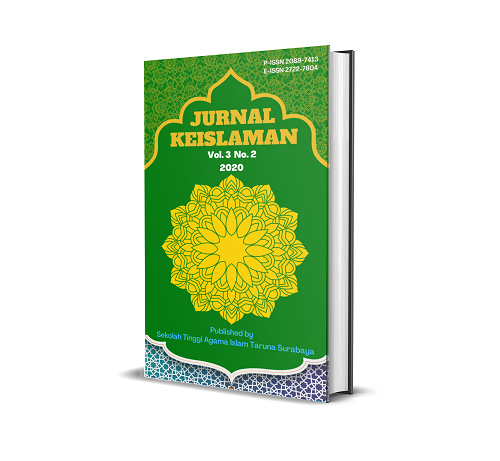Tindak Pidana Penganiayaan tidak tepat Sasaran dalam Perspektif Pasal 351 ayat (2) Kitab Undang-Undang Hukum Pidana dan Hukum Pidana Islam (Analisis Putusan Majelis Hakim Pengadilan Negeri Bangkalan Nomor 431/pid.b/2018/pn bkl)
Abstract
The main problem in this research is regarding a persecution committed by the perpetrator as a result of being driven by emotions due to things that are not yet clear, so that what he has done results in harm to other people who do not have any problems with him. So it can be concluded that the perpetrator has committed a maltreatment on purpose but not on target.This type of research uses the library research method (Library Research), which is a technique by conducting an inventory of statutory regulations and documents, also using literature obtained from the decision of the Panel of Judges which has permanent legal force based on the decision of the Panel of Judges at the Bangkalan District Court Number: 431 / Pid.B / 2018.PN Bkl.The results of this study indicate that the technique of the criminal act of persecution either intentionally or unintentionally is an act that is prohibited in Islam. who later will get sanctions, while the sanctions obtained by the perpetrators of this criminal offense of persecution is the law of qishÄsh as explained in the Nash Al-Qur'an, so that the substitute punishment for it is diyat or ta'zir. However, when viewed from the applicable law in Indonesia, the perpetrator is subject to imprisonment and a fine in accordance with Article 351 of the Criminal Code concerning maltreatment. Judging from the decision of the Panel of Judges Number 431 / Pid.B / 2018 / PN Bkl that the perpetrator is subject to imprisonment for 1 (one) year and 5 (five) months imprisonment and a case fee of Rp. 2000., (two thousand rupiah).Copyright (c) 2020 R Arif Muljohadi, Abdul Wahid

This work is licensed under a Creative Commons Attribution-ShareAlike 4.0 International License.
Authors who publish with this journal agree to the following terms:
- Authors retain copyright and grant the journal right of first publication with the work simultaneously licensed under a Creative Commons Attribution-ShareAlike that allows others to share the work with an acknowledgement of the work's authorship and initial publication in this journal.
- Authors are able to enter into separate, additional contractual arrangements for the non-exclusive distribution of the journal's published version of the work (e.g., post it to an institutional repository or publish it in a book), with an acknowledgement of its initial publication in this journal.
- Authors are permitted and encouraged to post their work online (e.g., in institutional repositories or on their website) prior to and during the submission process, as it can lead to productive exchanges, as well as earlier and greater citation of published work (See The Effect of Open Access).






















